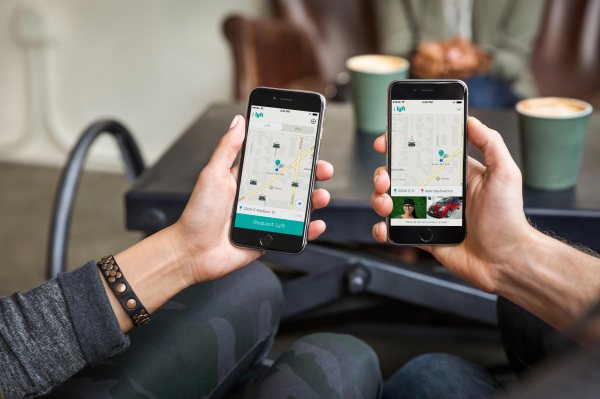As Uber ramps up its business globally with yet more money, four of its regional rivals are getting closer to each other in a bid for more scale and service continuity. Lyft in the U.S., Didi Kuaidi in China, Ola in India and GrabTaxi in SouthEast Asia have now inked a strategic partnership to work together on technology and services. This will begin with customers of each company able to use their local apps to order transportation when they travel to the other markets in the network, starting in Q1 2016.
The companies say that each country will handle “mapping, routing and payments through a secure API.”
The four companies all say the plan is to keep their independence as regionally-focused companies and to keep growing in that way, rather than to view this news as a precursor to a merger or more growth for any individual company.
“We’re not excluding expansion to other places, but we are a startup and cautious about how we grow,” a spokesperson for Didi Kuaidi told TechCrunch in an interview. “The idea is not to merge and acquire but to find people we can work with. In China we have an urban population of 800 million but we are only currently serving 250 million, so we have a lot of room to grow, and this population will always be our priority.”
Nevertheless, a service and technology tie-up between the four companies is a natural progression of the increasing financial connections between them. All four share common VC backers, most notably SoftBank, who we have in the past described as Uber’s biggest competitor because of its prolific investments in Uber competitors.
Collectively, the group has raised $7 billion in funding. But in the race to raise more money to pour into marketing, R&D and growth, Uber has built up a warchest of $8.21 billion and is reportedly raising another $2.1 billion more.
The other connection between the four partners is that Didi has invested in Lyft ($100 million announced in September), GrabTaxi (leading a $350 million round in August) and Ola (part of $500 million round also over the summer).
The Lyft deal, in fact, marked the start of the collaboration we’re hearing about today. At the time, the two companies announced similar cross-app collaboration by way of interlinking APIs to so that customers of one could hail cars in the other’s market.
Even with that cross-app service yet to launch, Didi is positive on its Lyft investment. Though there’s no merger/acquisition talks at this time, according to the company.
Uber takes a different tack by aggressively expanding into countries like China instead of partnering, taking on current ridesharing leaders there. Whereas Lyft’s current plan helps the startup get to know the place and gently expand use where other services dominate.
“When we look at other geographies, Asian geographies we do think there’s something exciting to do on our own,” says Lyft co-founder John Zimmer.
But don’t hold onto thoughts of Lyft as a standalone in foreign lands just yet. According to Zimmer that’s not in the cards in the near future. “That’s not something we’ll talk about until next year,” he said.
Part of the rationale for focusing on a cross-platform apps, the companies say, is that it will let them serve a large number of customers more continuously as they travel between the various markets, with a service that is more user-friendly. Didi says that China has nearly 100 million people travelling abroad every year, with 2 million U.S. visitors to China. And GrabTaxi highlights that Southeast Asia is a very popular destination for people from both India and the Mainland.
“We are pleased to help Lyft, Didi and Ola offer transportation services in Southeast Asia where the significant diversity of language, culture and social practices across the region can be challenging for foreign companies to navigate,” said Anthony Tan, CEO of GrabTaxi in a statement.
More importantly, it seems that a collaboration will help the companies measure how well they can work together, and where they might be able to reduce costs in the capital-intensive process of competing against Uber and other services both on a day-to-day basis, and as they eye up what new tech they may bring to the market in the future.
“We are excited to partner with Lyft, Didi Kuaidi and GrabTaxi, allowing seamless mobility access across hundreds of cities globally for our combined user base that runs into hundreds of millions,” said Bhavish Aggarwal, Co-founder and CEO of Ola in a statement. “This will also allow all four companies to learn from each other’s local innovations and successes that can help us in our shared mission to build better mobility solutions in our respective markets.”
Indeed, while Ola, Didi and GrabTaxi all claim to be market leaders over Uber in their respective regions, recently leaked financials from Lyft underscore just what a financial struggle it can be to compete in the transportation market today, and is perhaps a fate they all would like to avoid.
One gap in the market, however, still seems to be Europe, where Softbank has yet to reveal any investments in transportation apps, although a source says that we may see a development on that front in the next year.
